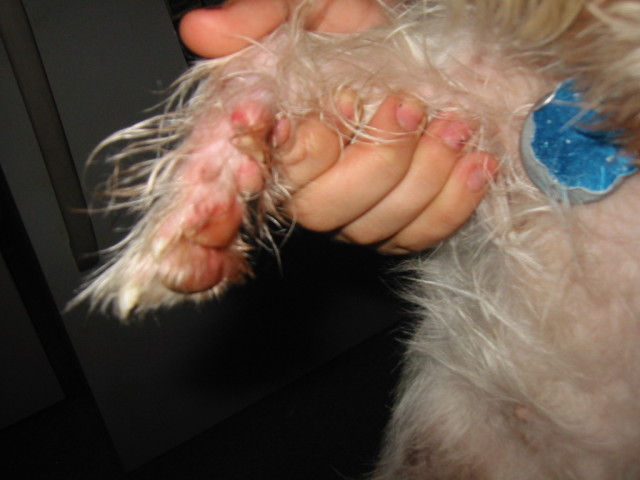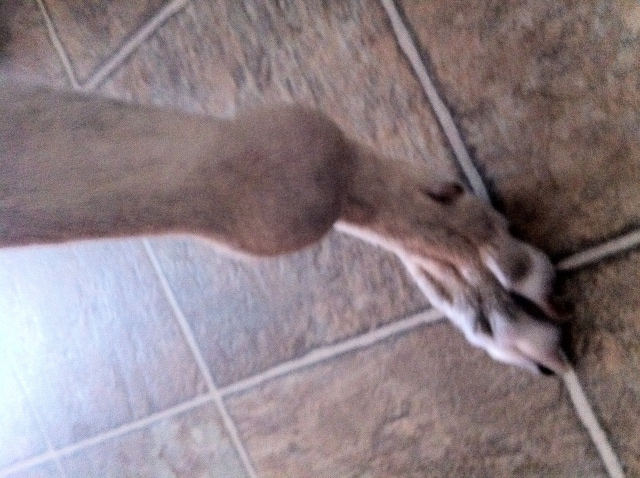Questioni understand yu are not a vet but i wonder if you have had any dogs that keep getting prepuce infections which is where they pee out of up inside there. i have a 15 year old bostonbull and has been to the vet and been on two courses of antibiotic treatment and ointment in the prepuce and he keeps getting it. the vets just keep sucking up money and not seem to be helping. do you know anything of this
AnswerHi Debbie,
Your vet isn't "sucking up money", your dog has a recurring condition which requires medical care.
Because your dog's infection has recurred, it's possible that he simply wasn't on the antibiotics for a long enough period of time. It's not unusual for a dog to require antibiotics for a month, if it's a particularly stubborn infection. Since your vet has treated your dog more than once for this, it's possible to just call him or her, explain that the same condition has returned, and get a prescription for the medication, if the vet thinks it would be helpful. No office visit required.
It would help your dog if you would gently flush out your dog's sheath twice daily with hydrogen peroxide solution for a week or ten days, this will not be the easiest to do with your dog, but it will help him. To do this using a rubber human ear syringe to hold the peroxide, insert its tip into the sheath opening, at the same time pulling the sheath gently toward the syringe. This will avoid the syringe tip touching the penis. Holding the sheath opening firmly around the syringe tip, slowly instill the peroxide until the prepuce distends slightly. Remove the syringe, keeping the prepuce opening closed, and gently massage the fluid back and forth within the sheath. Release the opening, let the fluid drain out, and carefully clean the surrounding area.
Because your dog is older, your dog may have this as a recurring problem. Once you get this current bout of the infection cleared up, regular flushing with peroxide or the application of an antibiotic ointment or both, done once or twice weekly should keep the discharge under control and avoid the more serious problems. In more severe cases your veterinarian should treat these kinds of cases your veterinarian may be require to place the application of irritating medications to these delicate tissues. This would, of course, be done under anesthesia and probably followed with soothing antibiotic ointments which you would continue at home as instructed.
Best of luck,
Patti

 Dog breed confusion
Question
photo of Toby 1 photo of Toby 2
H
Dog breed confusion
Question
photo of Toby 1 photo of Toby 2
H
 dew claw bleeding
Question
tashas paw
Hi I have a 2yr old female shutzu/M
dew claw bleeding
Question
tashas paw
Hi I have a 2yr old female shutzu/M
 what is my dog????
Question
Connie
Patti, i got my dog Connie a few months
what is my dog????
Question
Connie
Patti, i got my dog Connie a few months
 Anxiety separation????
Question
donovan
HI then, I got my schnauzer when it w
Anxiety separation????
Question
donovan
HI then, I got my schnauzer when it w
 Growth on dogs right foreleg
Question
Foreleg 1 Foreleg 2
Hi Gary,
Our
Growth on dogs right foreleg
Question
Foreleg 1 Foreleg 2
Hi Gary,
Our